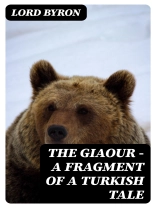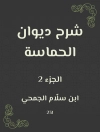In ‘The Giaour — A Fragment of a Turkish Tale, ‘ Lord Byron weaves a haunting narrative that intertwines themes of love, betrayal, and revenge within a richly imagined Oriental landscape. Written in a verse form that exemplifies the Romantic ideal of emotional intensity and individualism, this poem presents an exotic tale set in a world of passionate characters and violent passions. The fragmentary nature of the work heightens its allure, inviting readers to engage with the complex interplay of fate and desire while reflecting on the broader cultural and political tensions of early 19th-century Europe, particularly in relation to the Ottoman Empire. Lord Byron emerged as a prominent figure of the Romantic movement, characterized by his fascination with the exotic and the sublime. His own travels and encounters with Eastern cultures informed his storytelling, allowing him to explore themes of the ‘Other’ within Western contexts. The androgynous portrayal of the protagonist, Giaour, alongside the depiction of strong, vengeful female figures like Leila, signals a challenge to contemporary gender norms and social expectations, revealing Byron’s acute awareness of the tumultuous societal currents of his time. This essential reading is highly recommended for anyone seeking to delve into the complexities of love and revenge through Byron’s profound exploration of human emotion and cultural dichotomy. ‘The Giaour’ is not only a work of captivating storytelling but also a rich text for understanding the interplay between the East and West, inviting readers to consider the potency of love against the backdrop of a world painted with intricate conflicts.
Про автора
Lord George Gordon Byron (1788–1824) remains an emblematic figure in the pantheon of literary Romanticism. An English poet whose life and works have captivated scholars and readers alike, Byron was known as much for his exotic lifestyle and scandalous affairs as for his prodigious literary output. His grand tours, passionate relationships, and revolutionary zeal informed his poetry with a spirit of adventure and rebellion against the social norms of his era. ‘The Giaour — A Fragment of a Turkish Tale’ (1813) is a prime example of Byron’s romantic orientalism and narrative verse, imbued with themes of love, loss, and retribution. His pioneering use of the Byronic hero—tortured, brooding, and complex—defined a literary archetype. Byron’s other notable works include ‘Childe Harold’s Pilgrimage’ (1812-1818), where he rhapsodizes on the remnants of past civilizations and his own existential musings, and ‘Don Juan’ (1819-1824), a satirical epic that inverts the traditional image of the romantic protagonist. Byron’s poetry frequently merges personal experience with larger societal commentary, inviting readers to reflect on the human condition. He remains a defining literary figure, not only for his contributions to Romantic literature but for his forward-thinking approach to themes of identity, society, and the bounds of artistic expression.












